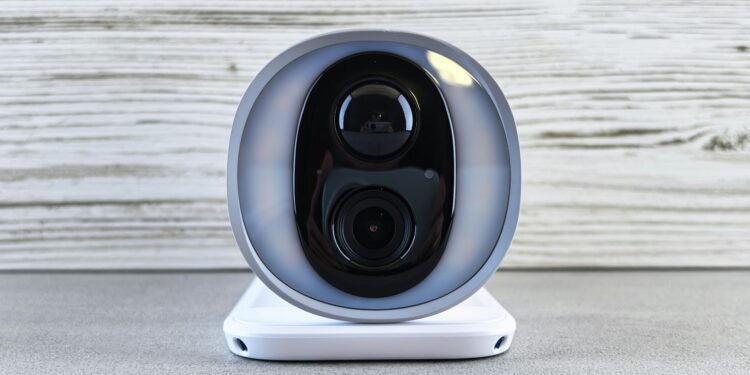The tech world is buzzing, not just with innovation, but with a profound ethical question. The recent launch of AI PCs, boasting dedicated Neural Processing Units (NPUs) and on-device AI capabilities, promises a future of unprecedented efficiency and personalization. Yet, alongside this technological leap, features like Microsoft’s highly controversial ‘Recall’ have ignited a fervent debate. This feature, designed to give users a photographic memory of their digital activity, inadvertently forces us to confront a critical dilemma: is making our technology smarter inherently making it creepier? This article delves into the heart of this complex issue, exploring the promises of AI PCs, the privacy fears stoked by features like Recall, and the delicate balance between groundbreaking innovation and the imperative of user trust.
The dawn of AI PCs: A new era of computing
The concept of an AI PC marks a significant evolution from traditional computing. At its core, an AI PC integrates a Neural Processing Unit (NPU) directly into the hardware, alongside the CPU and GPU. This dedicated AI engine is designed to handle AI workloads locally on the device, rather than relying solely on cloud-based processing. The benefits are substantial: enhanced speed for AI-powered tasks like real-time translation, image generation, and intelligent search; improved energy efficiency, leading to longer battery life; and, critically, a potential boost in privacy, as sensitive data can theoretically remain on the device without being sent to external servers. This localized processing capability opens the door for deeply personalized user experiences, making our interactions with technology more intuitive and seamless than ever before. For many, this represents the natural progression of computing, promising a future where our devices anticipate our needs and streamline our workflows with remarkable precision.
Recall and the privacy conundrum: Unpacking the “creepier” side
While the promise of AI PCs is compelling, features like Microsoft’s ‘Recall’ cast a shadow of concern. Recall, part of the Copilot+ PC experience, is designed to allow users to scroll back in time through their entire digital activity, capturing screenshots of everything they’ve done on their PC – web browsing, document editing, communications, and more. This “photographic memory” of your PC is then analyzed by AI, allowing users to search for information based on things they’ve seen or done, not just files they’ve saved. While Microsoft asserts that Recall processes data locally and users have control over its activation, the very concept raises significant privacy alarms. Critics highlight the potential for sensitive personal and professional data to be inadvertently exposed, whether through unauthorized access to the device or vulnerabilities in the feature’s security. The idea of a system constantly observing and recording every on-screen action, even if stored locally, evokes a sense of pervasive surveillance, challenging traditional notions of digital privacy and personal space. It transforms the PC from a tool into a persistent, all-seeing eye, regardless of the developer’s stated intentions.
Navigating the ethical tightrope: Balancing innovation and trust
The debate surrounding AI PCs and features like Recall underscores a fundamental challenge for the tech industry: how to innovate responsibly while maintaining user trust. The rapid advancements in AI necessitate a proactive approach to ethical considerations, moving beyond simple feature deployment to a deeper examination of long-term societal impacts. Transparency is paramount; users need to fully understand what data is being collected, how it’s being used, and crucially, how to control or disable these features. Opt-in mechanisms, rather than opt-out defaults, are often seen as a fairer and more privacy-respecting approach. Furthermore, robust security measures are not just an add-on but a foundational requirement to protect the vast amounts of personal data that AI systems can generate and process. The industry must grapple with the potential for AI features to be misused, whether by malicious actors or even by the systems themselves through unintended biases or errors. Building trust requires a commitment to user agency, data minimization, and ongoing dialogue with privacy advocates and regulatory bodies. The future of AI adoption hinges on this delicate balance.
Here’s a breakdown of the perceived benefits versus potential concerns:
| Perceived benefits of AI PCs | Potential concerns (e.g., Recall) |
|---|---|
| Enhanced performance for AI tasks | Pervasive surveillance feeling |
| Improved energy efficiency | Vulnerability to unauthorized access |
| Personalized user experiences | Unclear data retention policies |
| Local processing for privacy (theoretical) | Potential for misuse by third parties |
| Seamless workflow integration | Ethical implications of constant recording |
The user’s role: Empowering choice and demanding accountability
In this evolving landscape, the role of the individual user becomes increasingly critical. While tech companies bear the primary responsibility for ethical AI development, consumer awareness and proactive engagement can significantly shape the trajectory of these innovations. Users must move beyond passively accepting default settings and actively scrutinize the privacy implications of new features. This means understanding privacy policies, knowing how to customize settings, and being vocal about concerns regarding data collection and usage. The collective voice of consumers demanding greater transparency, robust security, and clear control over their data can exert powerful pressure on manufacturers to prioritize privacy by design. Furthermore, supporting companies that demonstrate a strong commitment to ethical AI and data protection sends a clear market signal. Ultimately, the debate over whether smarter tech is creepier tech will be decided not just by what innovators create, but by what users are willing to accept and demand.
The launch of AI PCs and features like Microsoft’s ‘Recall’ has undoubtedly ignited a crucial debate: are we sacrificing privacy for technological advancement? We’ve explored the immense potential of AI PCs for efficiency and personalized experiences, driven by on-device processing. Yet, the deep concerns surrounding features like Recall, which capture and analyze user activity, highlight a significant tension between innovation and fundamental privacy rights. The core of the issue lies in finding the right balance – fostering technological progress without eroding user trust or creating systems that feel inherently intrusive. Moving forward, the industry must prioritize transparency, robust security measures, and genuine user control over data. As users, our informed choices and collective advocacy will play a pivotal role in shaping an AI-powered future that is not just smarter, but also more secure, private, and respectful of individual autonomy.


















